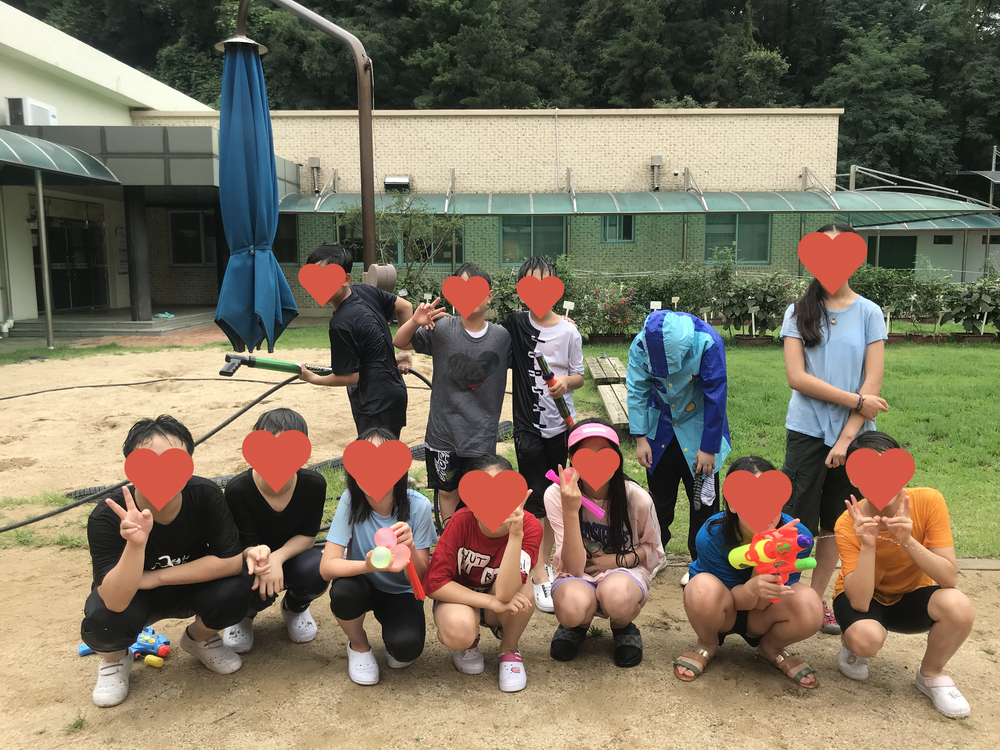Is It Problematic to Teach English in South Korea? Part 3: The System We Got
Part 3 of my Is It Problematic to Teach English in South Korea? series, which examines the TEFL industry in Korea, linguistic imperialism, and neo-colonialism.
WHAT TO DO WITH THIS THING CALLED ‘ENGLISH’
“My quarrel with the English language has been that the language reflected none of my experience. But now I began to see the matter another way…. Perhaps the language was not my own because I had never attempted to use it, had only learned to imitate it. If this were so, then it might be made to bear the burden of my experience if I could find the stamina to challenge it, and me, to such a test.” - James Baldwin
In my last two posts, we discussed how English has been used as an imperial tool—and also how the TEFL industry looks in Korea today.
I brought up some serious glaring issues of white privilege and non-diverse curriculum in Korean schools—as well as some common sentiments Koreans might feel about the “universal language.”
So…if this is the system we’ve got…is that it?
Pennycook, another scholar, says (paraphrasing here): Yeah, English has been used to promote a Western hegemony--but that doesn’t mean we always have to use it to that end.
Authors like Chinua Achebe and James Baldwin (pictured) have used English as a resistance to white supremacy and colonization (source). (picture source).
So the official curriculum might not be very diverse. Okay. Well, there’s a lot teachers can do to challenge that.
EPIK teachers are almost always Western, but a teacher from South Africa and a teacher from Scotland are going to be able to represent two very different worlds of English. Having students learn from them is a form of cultural exchange they usually can’t get elsewhere.
For example, every year I teach my students about Día de los Muertos and show pictures of my family’s ofrenda. I’m always extremely proud to share that part of myself with my students. Not only because it matters to me, but because when my students learn about a cultural practice they don’t know about, they can connect those ideas with their own traditions.
There’s so many teachers here who aren’t American and aren’t white—who are queer or disabled or neuro-atypical and so on. Many teachers here break the “typical” foreigner mold.
Though he teaches in Japan, Patrick @thepaperpat is a popular Tiktoker and a great example of a teacher who educates his students on race and culture
YOU’VE HEARD OF WHITE GUILT, NOW GET READY FOR...
Whether teaching English abroad is imperialistic or neocolonial is a huge question that can’t be easily answered. I’m really not joking when I say the scholarship has been huge on this—at least since the 90s. A scholar, Rajagopalan, muses that Phillipson created a “the guilt complex” among TEFL teachers (194).
Basically, he started all the questions I’m asking myself now. Am I complicit in imperialism, neo-colonialism, etc.?
Rajagopalan argues that it’s foolish “to expect such power inequalities can be rectified or done away with once and for all, since all societies are riddled with ‘indispensable inequality” (194). But debate rages on and on and on and...
For me? I believe the answer lies in the context: e.g., where you’re talking about and how English is taught.
While none of us can single handedly break apart the giant gears of imperialism, we do have responsibilities as educators to break cycles of imperialist thought.
OUR TOOLKIT
“For me, there is no other choice. I have been given this language and I intend to use it…For those of us who opt for English, there is much work ahead and much excitement.” - Chinua Achebe
1) ACKNOWLEDGE
First comes respecting the sociopolitical situation of the country you’re going to.
As an American, Canadian, Australian, or European, our dollar is much stronger than many currencies, and that gives us much more spending power than most locals of TEFL-based countries.
For South Korea, specifically, this means being aware of the relationship between Koreans and English. White Westerners have to be aware of white privilege, which certainly exists even in Korea.
We also have to be aware of the complex histories of colonization wherever we go. The spread of English, as Bijoy Lal Basu puts it, is not natural (196).
2) WHAT ENGLISH DOES, NOT WHAT ENGLISH IS
Our power as educators can’t be understated. Most teachers I know focus on English as a tool. That is, what English does, and what it can do for you. The functional approach, as Phillipson would put it.
This is what I said to my sixth graders as they prepared to graduate: “Your English ability doesn’t define your worth or your intelligence,” I told them. “It just lets you talk to people like me.”
3) REPRESENT & VALUE
I want to uphold non-native fluent speakers in the classroom. This is where I really respect my co-teachers, who provide a role model for my students.
I encourage the students to ask questions in Korean if they can’t in English. I have never been one of those teachers who doesn’t allow Korean in the classroom.
I also don’t devalue dialectal speech. I’ll explain to my students when a word is Konglish—the mix of Korean and English—but I don’t tell them they can’t use it.
I try to diversify the idea of English in the classroom. I give examples of dialectal English. I explain what differences I know—regional slang, AAVE, and differences between, for example, British and US English. I also try to explain differences between generational speech and how English in America is changing.
Skyping with an elementary school in India
With these strategies, we can make our classrooms a celebration of language, not a devaluation of their native tongue. We can make it more about shared cultural understanding—because of course they do teach me about Korean language and culture—and I can try to express the deep variations of the Anglophone world.
THAT WAS….A LOT
“But let us not in rejecting the evil throw out the good with it.” - Chinua Achebe
To end on a somewhat reductive but conclusive note, I don’t believe going to teach English in South Korea is inevitably harmful.
Maybe I’m lying to myself so I don’t feel complicit. Maybe I’ll look back on this in ten years and think I’m so wrong. But that’s my stance and here’s why:
My students are not taught monolingually and their teachers are predominantly Korean. Our tenure here in Korea is more of a culture ambassadorship than linguistic instruction.
American imperialism is a serious issue at large and, yes, in Korea too.
But this program includes many diverse people who can personally represent largely ignored communities that students might otherwise never know.
We require a lingua franca. As Achebe said, “Today, for good or ill, that language is English. Tomorrow it may be something else, although I very much doubt it.”
As we answer questions of why English, we would be remiss to ignore the how. If you teach English abroad, you have a responsibility to teach in a way that is culturally-sensitive, nuanced, and liberating. That is a form of resistance we need.
Thanks for reading.
Now that my series is done, I want to hear what you think.
I feel like the two camps of “Teaching English abroad is a tool of imperialism” and “Teaching English is good for both parties, actually” are two ships in the night, never to really meet.
People who believe teaching abroad is wrong are never going to do it themselves. They won’t have experience with what the reality of teaching in Korea might be or the tools that are available.
People who join the TEFL industry might not explore the history they’re jumping into. I don’t believe TEFL is always a completely harmless endeavor; teachers who scoff at the idea that we can be perpetuating some harmful ideas aren’t allowing the topic the full complexity it deserves.
My conclusion was probably obvious to anyone reading because, again, I am a teacher here. I came into this system believing it to be mostly beneficial for myself and others—whatever hesitations I had. After all, if teaching abroad is a tool of imperialism then…well, I’m more than complicit. I’m guilty.
I can’t speak to countries other than Korea, whose histories and current realities might be overtly exploited. I also can’t sum up the entire scholarship of linguistic imperialism in under 3,000 words. Honestly, this topic is so big and I have so much more to say…this might end up being my Master’s thesis.
Still, I think (hope?) I’ve reflected on this topic thoroughly. What do you think?
Sources
Achebe, Chinua. “Achebe on Language.” Edited by Derek Barker, Chinua Achebe: Father of African Literature 1930-2013, 29 Oct. 2013, viennachinuaachebe.wordpress.com/2013/10/29/achebe-on-language/#:~:text=Or%20we%20may%20go%20on,out%20the%20good%20with%20it.
Achebe, Chinua. “English and the African Writer.” Transition, no. 18, 1965, pp. 27–30. JSTOR, www.jstor.org/stable/2934835. Accessed 26 Mar. 2021.
Alam, F. (2007). Imperial Entanglements and Literature in English. Dhaka: Writers.ink.
Basu, Bijoy Lal. “The Global Spread of English, ‘Linguistic Imperialism’, and the ‘Politics’ of English Language Teaching: A Reassessment of the Role of English in the World Today.” Spectrum, vol. 8, 9, July 2013, pp. 186–198.
Exambot. “Why the ESL Market Is Set to Boom in the next 10 Years.” CEFR Exam Bot, CEFR Language Exam Resource Centre, 15 Apr. 2018, cefrexambot.com/esl-market-due-boom-next-10-years-part-1/.
Hamburg, Sarah K. “Linguistic Imperialism and Volunteer English Teaching: A Neocolonial Practice?” University of Montana, 2017, scholarworks.umt.edu/cgi/viewcontent.cgi?article=1178&context=utpp.
James, Alyssa. “How to Teach English Abroad and Not Be a Neocolonialist.” Matador Network, 26 Nov. 2013, matadornetwork.com/abroad/how-to-teach-english-abroad-and-not-be-a-neocolonialist/.
Pennycook, A. (1994). The Cultural Politics of English as an International Language. Essex: Pearson Education. Phillipson, R. (1992). Linguistic Imperialism. Oxford: Oxford University Press. https://books.google.co.kr/books/about/Linguistic_Imperialism.html?id=4jVeGWtzQ1oC&redir_esc=y
Phillipson, Robert. Linguistic Imperialism. Oxford [England: Oxford University Press, 1992. Print.
Phillipson, R. (2008), Lingua franca or lingua frankensteinia? English in European integration and globalisation1. World Englishes, 27: 250-267. https://doi.org/10.1111/j.1467-971X.2008.00555.x
Smith, Michael. (2019). A Bourdieusian Interpretation of English Language Learning: The Case of Korea. 15. 3-22.
Smith, Michael. (2018). Centre-Periphery Agency Dynamics During Linguistic Imperialism: An Investigation of Korean Perspectives. 14. 3-30. 10.5281/zenodo.4437743.
Song, Sooho. Second Language Acquisition as a Mode-Switching Process: An Empirical Analysis of Korean Learners of English. Palgrave Macmillan, 2018.
The Halfie Project, director. Does White Privilege Exist in Korea? What Might It Look Like? #THPP. Performance by Cedric, and Becky, YouTube, YouTube, 3 Feb. 2021, www.youtube.com/watch?v=8jP4RsQjk6k&feature=youtu.be.





